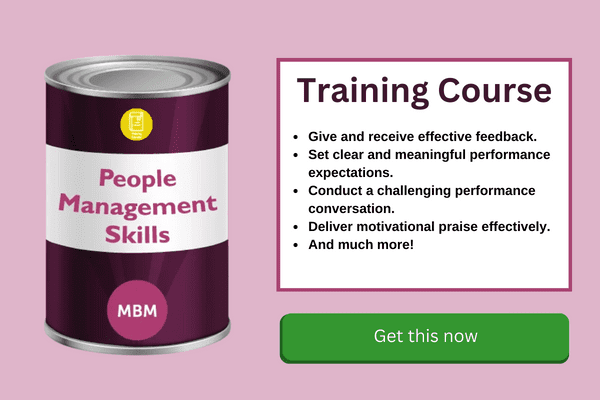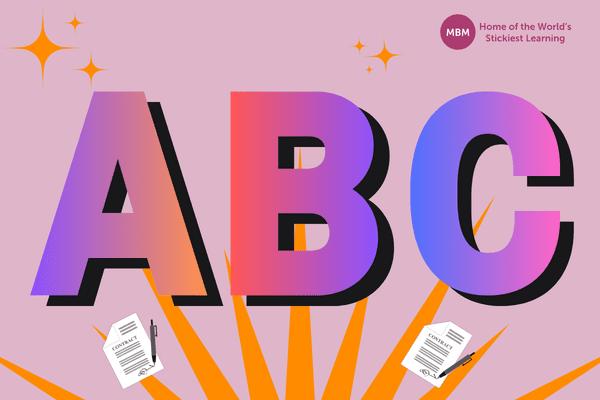Empower Your Coaching Journey with Insightful Contracts
Are you an HR manager trying to get the best out of your team? Or a L&D manager tasked with creating company-wide learning programs? Either way, any professional looking to inspire employees should view coaching as central to their work. While good interpersonal skills and a positive attitude are great places to start, successful coaches understand the value of setting clear expectations. This is why it’s important to create coaching contracts used to define the scope of your development programs.
Coaching contracting helps managers to build strong professional relationships and inspire their teams to succeed. Therefore, setting clear boundaries and expectations for staff to follow.
For managers and leaders looking to improve their coaching programs, below is a range of best practices and thoughtful insights to help you create effective coaching contracts.
What is Coaching Contracting?
Firstly, coaching contracting is simply the process of creating a coaching contract. A document used to define the working relationship between a coach and their clients.
Great coaching contracts will cover five key points as clearly as possible. With the goal being to set mutually agreed boundaries for the coaching relationship to exist within.
The Five Pillars of Coaching Contracting Are as Follows:

- Define what you want to achieve during the coaching program.
- Outline the skills the client should leave the program with.
- Set a schedule for where and when sessions should take place.
- Explain how long the coaching program is expected to last.
- Decide who is responsible for different aspects of the program.
In short, your coaching contract should clarify the objectives, expectations and deliverables regarding all parties. This process will help to avoid conflicts during the coaching process.
What Are the Benefits?
Coaching contracting ensures that all parties easily understand the ground rules for learning programs. The goal is to ensure clients have a clear understanding of their expectations during the process, encompassing how the sessions will operate and how to assess course progress.
Coaching contracting also offers some protection to coaches. By defining expectations in a written contract, coaches can be shielded from disagreements. Providing both parties with peace of mind and ensuring relationships are built on clarity and trust.
Additionally, contracts help coaches to ensure clients understand important legal information. This can include ethical and professional standards, data protection rules and termination policies. Furthermore, coaches may avoid financial conflicts by defining payment terms and penalty fees before the course starts.

Sticky Learning ® is 7 times more effective than 1-day training courses. Plus, you will get a Chain of Evidence proving your Return on Investment. Discover soft skills training that changes behaviours long term.

Do You Need a Contract for Coaching?
The law does not require coaches to create contracts. However, there are a few reasons why coaching contracting should be considered a necessity. Most importantly, coaching contracts protect both parties from legal disputes. By ensuring all participants agree to the same terms and conditions, disputes are less likely to impact the coaching relationship.
A good coaching contracting process will also help to set a professional tone for ongoing relationships. Demonstrating a commitment to confidentiality and trust in a written agreement ensures clients will treat the process with respect.
What Are the Best Practices for Coaching Contracting?
Alongside essential details like contact information and fee agreements, an effective coaching contract will tell clients what’s expected of them. This includes macro details like the main course goals and smaller things like how to reschedule or cancel appointments.
Below are 8 important best practices for coaching contracting.
1. Define the Scope of the Program
This should be your first step, as defining the scope of the program will impact every part of the coaching contract. This involves laying out exactly what you can and cannot do in your role as a coach. Alongside the things your client can expect from you during the course.
Clearly state your credentials, as this will help clients to understand the limits of your abilities. For example, at points, you may discuss general life advice. However, you must clarify that this is not to be treated as professional counselling or therapy.
You should also specify the services clients can expect to receive during the course. This may include access to online resources, rules about personal messaging and access to physical guides or handouts. Setting clear boundaries will prevent confusion and conflict during the course.
2. Manage Expectations
Not all clients understand the difference between coaching, training and counselling. This is important because success in each of these processes can look very different. Training aims to teach specific skills, while counselling is a form of professional therapy. Coaching is different as the goal is to enhance the client’s ability to engage in personal growth.
Clients must expect to learn how to support themselves rather than how to perform set tasks. This means coaching will only be successful if clients continue to work on personal development in their own time. If clients don’t know this, they may not feel the course has been a success.
Making sure clients know what to expect before the coaching course can also improve engagement. Some people may feel negatively about training programs, but studies show most staff support development courses. In fact, 94% of workers say they’d stay with a company longer if they offered more learning and development opportunities.

3. Create Clear Boundaries
Coaching can be very personal, so it’s wise to set boundaries to keep things professional. A good coach will strive to make their clients feel safe. But a balance between comfort and professionalism must be found.
A good coaching contract will outline rules about contact outside of work hours. As well as offer insights into difficult topics that might come up. It’s also wise to include a set start and end date for the course. This way clients will know when your coaching services will stop.
4. Prioritise Confidentiality
Coaches have an ethical responsibility to respect their client’s privacy. This implies that a good coaching contract must include a clause that defines the usage of client data. Inform clients that we will maintain the confidentiality of all information shared during sessions. It’s a good idea to explain how you’ll do this by sharing the data privacy rules you’ll be following.
As coaching contracting is an ongoing process, you should outline how you’ll inform clients of rule changes. Clients must also know their data will not be shared after the course ends. So you must include information about your data storage and disposal policies.
Sessions should be performed in a private space. Use physical security controls like door locks on meeting room doors to promote safety. Clients should feel secure and supported during sessions, as this will help them to engage with the course content.
5. Stick to a Regular Schedule
Sticking to a regular routine helps people to retain more information. This has been shown in studies linking the formation of habits with repeatable daily routines. As coaching relies on teaching clients to create new behavioural patterns, sticking to a routine is crucial.
Include an outline of your schedule in your coaching contract. Add details like how long each session will be and the length of the whole course. Talk about cancellations, telling clients how to let you know if they can’t make a session. Also, think about offering alternatives like online sessions where possible.
6. Set Achievable Goals
Goals help clients see the value in coaching. Setting achievable goals to be met at certain points in the course will keep clients engaged. As part of your schedule, include notes about the goals you intend clients to achieve at set intervals. Start with small goals to raise confidence, working towards larger ones at the end of the course.
Remember, coaching goals will be different to training course goals. Clients will typically learn broad skills rather than how to perform specific tasks. Common benefits clients receive from coaching courses include improved self-confidence and communication skills. Setting goals related to these skills will help clients see how well they’re doing.
7. Add a Disclaimer
At the end of your contract, you must add a disclaimer. This text must tell your client that the contract is a professional agreement and not a legal document. State that the contract can be changed if both parties agree in writing and add space for the client’s signature.
It’s wise to mention the course will only be effective if clients follow your guidance. This way you’ll have some protection from disgruntled clients. Make sure this text is clear and take the time to talk it over with clients. You must ensure they understand and agree to your terms.
8. Remember the ABC of Coaching Contracting

Finally, remember the golden rule of coaching contracting, Always Be Contracting. Coaching relationships can evolve over time, requiring adjustments to the rules. Check in with clients after sessions to make sure they’re happy with the course. Take note of their feedback and make changes where appropriate.
Ensure your clients understand that you will listen to their opinions. Coaching courses are reliant on a strong coach-client relationship. This means for clients to get the most out of their sessions, they need to feel comfortable and supported. Showing you’re willing to adjust rules to meet your client’s needs will help to create a safe environment.
Conclusion
Remember, well-made coaching courses can help managers to get the most out of their teams. But creating a safe, professional and productive course will take a lot of work. Sticking to the principles of coaching contracting will help you to achieve this. Defining clear boundaries and expectations to support clients in unlocking their true potential.
A great contract will prepare clients for all aspects of the course. With clear schedules, rules about the coaching relationship and achievable goals. Make sure to talk through the contact with clients before they sign. Ask about their expectations and take on board their feedback.
These best practices will help to create a strong bond between coaches and clients. Making sure all parties get the most out of coaching programs.




